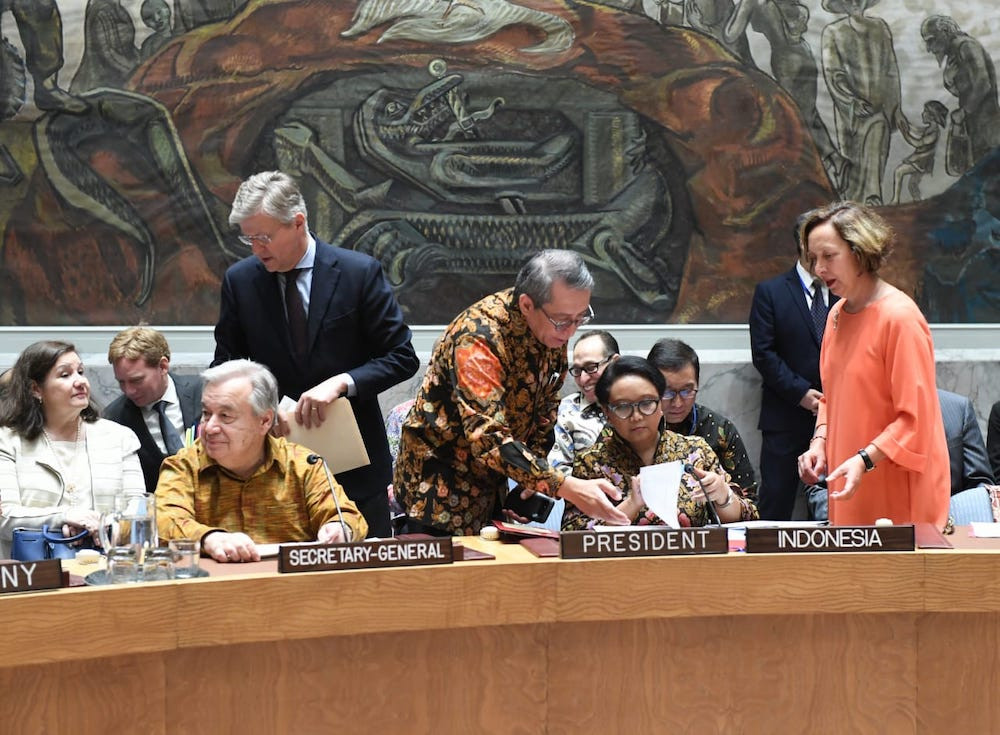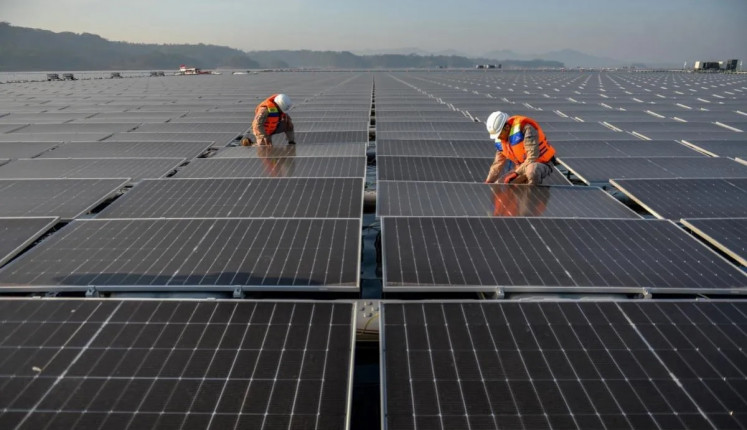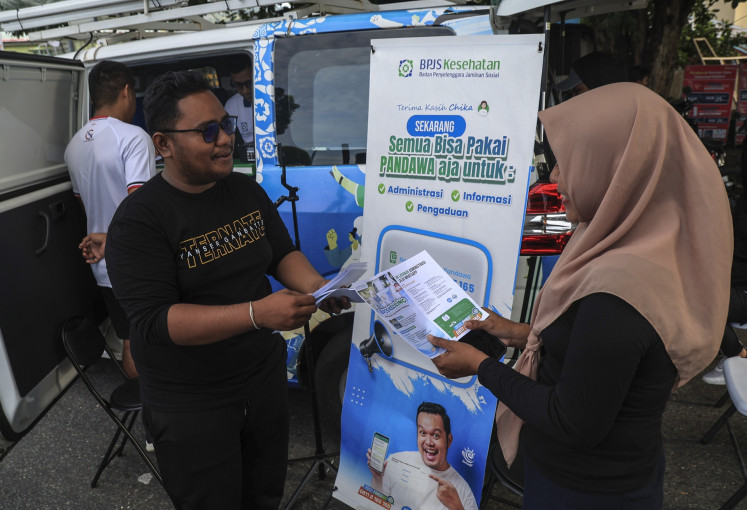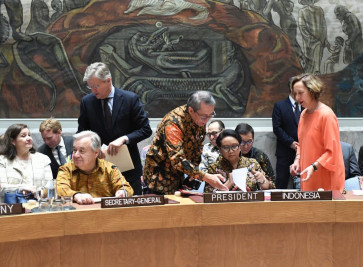Popular Reads
Top Results
Can't find what you're looking for?
View all search resultsPopular Reads
Top Results
Can't find what you're looking for?
View all search resultsWhat has Indonesia achieved in UNSC?
While the Security Council’s uniqueness as a UN body is its authority to issue binding resolutions to member states, perhaps it is unfair to judge Indonesia’s performance based on its contribution to resolutions. Indonesia has certainly been active through other avenues.
Change text size
Gift Premium Articles
to Anyone
I
ndonesia has now been sitting as a nonpermanent member of the United Nations Security Council (UNSC) for six months, a position it greatly coveted and campaigned for during Foreign Minister Retno Marsudi’s term in office. But has it made worthwhile achievements on the council?
Indonesia has so far used its seat on the Security Council in much the same way it conducts foreign policy: Emphasizing dialogue and the image of neutrality over making substantial moves.
While Indonesia has duly voted in favor of many UNSC resolutions which were unanimously adopted so far this year, when it comes to conflicting views within the council, Indonesia’s preference is apparently to abstain instead of boldly standing for or against a policy issue.
This hesitancy can be seen in how Indonesia reacted to the UNSC vote on draft resolutions on Venezuela in February. The United States and Russia had submitted two competing drafts to the council, with the US calling for the need to hold elections in the conflicting country, and Russia stressing that a resolution should be reached through internal Venezuelan dialogue while omitting mention of humanitarian aspects to the crisis.
Indonesia consistently abstained in the vote, citing that neither draft was sufficiently complete and comprehensive in the discussion of issues. Both resolutions failed and the UNSC has yet to adopt a united position on the Venezuela humanitarian crisis to this day.
Ironically, the only draft resolution in which Indonesia was a significant penholder also lacked the comprehensiveness that it deems important. Indonesia and Germany co-submitted Resolution 2460 to extend the mandate of the UN Assistance Mission in Afghanistan (UNAMA). While the resolution was unanimously adopted, it was also lamented by many of the Security Council members as lacking substance and detail.
In the meeting about the resolution, the Afghan representative said that they “regret” how the negotiations only led to a mandate extension of six months, instead of the 12-month renewal norm. Meanwhile, Indonesian Ambassador to the UN, Dian Triansyah Djani, during the meeting reasoned that “unity was the priority” in the production of this thin resolution.


















